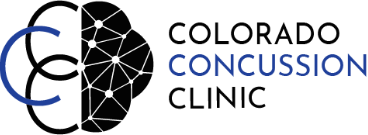One of the most prominent symptoms of concussion is headache. After a concussive injury headaches are often the main symptom that impacts one’s daily functioning. One moment you might be effectively managing your pain and then the next thing you know you have a significant headache that causes you to stop what you are doing. Patients often remark, “It just came out of nowhere!”
Helping Family Members with Concussion
When someone has a broken leg, it’s pretty obvious how we can be helpful. We can drive them places, open doors for them, carry their groceries, etc. Concussion is a different kind of injury. It is known as “the invisible injury” because it is not externally obvious to others. There’s no cast, no crutches, and it doesn’t even show up on a CT scan. The individual often struggles with thinking, overstimulation, and fatigue, among other things. Sometimes people aren’t sure what they can do to help. The answers may vary, depending on the individual, but here are some general tips for how to help someone you know who has had a concussion.
“Jot That Down” - Thoughts about note-taking following a head injury
One of the things I hear frequently when I meet a new patient is, “All of a sudden I have to write everything down. I used to just remember things and now I’m totally overwhelmed. It’s SO frustrating!”
Let’s take a minute to analyze the situation and put things in perspective. Normally, you have a routine which may involve work, typical household chores, family obligations, etc. But now you’ve been hurt - maybe due to a fall, a sports injury, or a car crash. You’re not feeling like yourself, you’re tired and scared, and all of a sudden tasks are piling up. In addition to your usual responsibilities, you may be dealing with any or all of the following:
Physical symptoms: headaches, dizziness, nausea, sleep disturbance, etc.
Emotional symptoms: sadness, fear, anxiety, trauma, etc.
Medical appointments happening at different times on different days
Insurance companies
Work issues
Not having a car
Being unable to perform household chores
When we think of it that way, it’s a lot! You’ve had several things added to your plate, and it’s hard to juggle and remember everything that needs to be done.
How Does Impaired Hearing Impact Cognition?
Did you know that hearing impairment is a common symptom after sustaining a concussion? Many people are aware of post-concussive symptoms such as headaches, dizziness, or memory loss, but are less familiar with the possibility of hearing impairment. Some people experience hearing loss while others may experience symptoms such as difficulty processing auditory information, ringing in the ears, or sensitivity to noise. It varies significantly by person, but these symptoms can sometimes have a profound effect on your life.
You might be surprised to learn that even mild hearing impairment can impact a person’s life and daily functioning. In fact, research shows that even mild hearing impairment is associated with a faster rate of cognitive decline as well as an increased risk of dementia. In this blog, we’re going to discuss several examples of different areas of cognition that are directly impacted by a hearing impairment in addition to some tips to help you alleviate these challenges.
Four Ways to Manage Fatigue From a Cognitive Perspective
Fatigue is one of the most common symptoms our patients report after they experience a concussion. It can reveal itself physically, cognitively, or even emotionally. Our group of speech language pathologists at the Colorado Concussion Clinic often work with our patients to manage each type using a holistic and individualized approach to cognitive therapy. While there are many different ways to treat fatigue, here are four ways we might address it in therapy with you…

